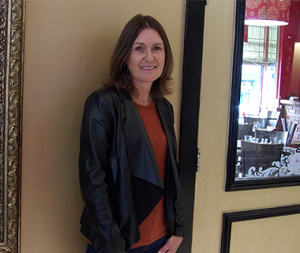Look back to go forward

National Sexual Violence Survivor Advocate Louise Nicholas battled her way through the court process seven times – two deposition hearings and five court cases, from 1993 to 2007 – with little support. Her personal experience, and her experience of the system, was what led to her wanting to support others. It started out informally, as she began receiving letters, calls and emails from survivors of sexual violence, asking for help.
Louise’s role as a National Sexual Violence Survivor Advocate was formally established in 2008, funded by the Ministry of Justice and ACC. The role is fully independent, enabling her to ‘say it how it is’ and to support victims before, during and after the court process, including through direct engagement, psycho-social support and helping victims navigate other services.
Louise helps complement the work done by the Ministry’s specialist sexual violence victim advisors.
She has close relationships with Police, specialist agencies and court advisors, who get in touch when they need her support. She also gets direct requests from survivors.
Her role, she says, is about supporting survivors of sexual violence and their families ‘through whatever process they need to be going through, and to help them navigate through the system that will help
heal them from whatever they’ve been through’. She also dedicates her time to advocacy work and public speaking.
It’s obvious that what drives her to care and to help others runs deep. She knows. And she knows the system, having experienced it for herself.
That being said, ‘every survivor is unique in their journey – they’re the expert’, says Louise. ‘I’ll typically approach them by having a sit-down conversation, explaining to them that I’m not a counsellor, but I have a huge understanding of what they’re going through and where they’re heading. That way we get to know each other.
‘I find that people are generally so open and honest…a bit like an onion peeling the layers back, but they do this for themselves, because there’s a lot of trust. They just need to be allowed to talk.
‘A lot of people are worried about whether they’ll be believed and I always say to them, “you know what sweet, at the end of the day, you wouldn’t be in this process if they [the Police] didn’t”. This is the biggest thing for survivors – having people believe them.’
Louise supports survivors for as long as they need, which is necessary given the potential for delay in the court process.
‘It’s important to stay with them because 99.9 percent of the time, there’s a delay. It’s important to stick with them and to keep them in the process, because every time there’s a delay, it’s much easier for them to say “that’s it, I’m out of here”.
‘Many of them get worn out. They can’t move forward when they’ve still got this thing sitting over them. Stress and emotional levels are through the roof.’ She still receives emails from survivors she’s worked
with in the past, who sometimes just want to talk and to tell her they’re having a bad day.
‘I always pick up the conversation. I remind them that even though they’ve gone through the process, they’ll never forget what happened to them. Sometimes you have to look back in order to go forward. That’s what got me through – I kept looking back, and thinking “I never want to go back there again” – I wanted to move forward.’
Louise emphasises that it’s especially important for a survivor’s family to be well supported and to understand the process.
‘At the end of the day I’m only there for a limited time, but the family are there all the way through. It’s important that the family understand the triggers and emotions, so that they can provide support.
‘I find that if a survivor and their family have support going through the police process and the court process, then regardless of the outcome, they walk out of that courtroom with their head held high, even though it was bloody hard, and they wanted to give up so many times.
‘I get to see them grow – this is what keeps me doing it. I can see that it makes a difference to them and their families.’
This story is from our 'Justice: Our People, Our Communities' booklet.